Facial Feminization Surgery (FFS) in France
Search and Compare the Best Clinics and Doctors at the Lowest Prices for Facial Feminization Surgery (FFS) in France

Find the best clinics for Facial Feminization Surgery (FFS) in France
No pricing info available
Thailand offers the best prices Worldwide
Price: $ 1,945
Clinique Saint Charles, located in Chemin du Penthod, Lyon, France offers patients Facial Feminization Surgery (FFS) procedures among its total of 114 available procedures, across 5 different specialties. Currently, there's no pricing information for Facial Feminization Surgery (FFS) procedures at Clinique Saint Charles, as all prices are available on request only. There is currently a lack of information available on the specialists practicing at the Clinic, and they are accredited by ISO 9001:2008
- Home
- France
Compare Before & After Photos of _procedure_photos.phpFacial Feminization Surgery (FFS)
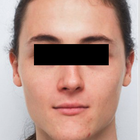
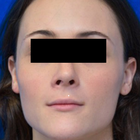
Front view
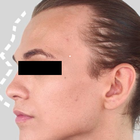
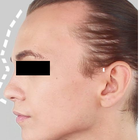
Half-side view
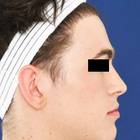
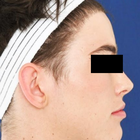
Full-side view
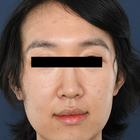
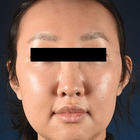
Front view
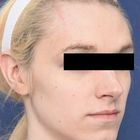
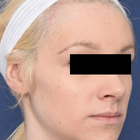
Half-side view
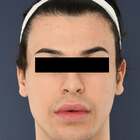
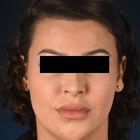
Front view
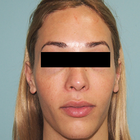
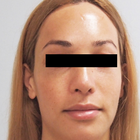
Front view
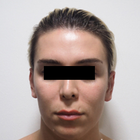

Front view
WHY US?
At Medijump, we're making medical easy. You can search, compare, discuss, and book your medical all in one place. We open the door to the best medical providers worldwide, saving you time and energy along the way, and it's all for FREE, no hidden fees, and no price markups guaranteed. So what are you waiting for?

Free

Best Price

Widest Selection

Risk-Free
What you need to know about Facial Feminization Surgery (FFS) in France
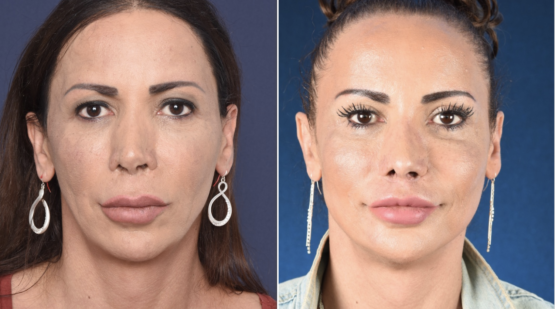
Facial Feminization Surgery, often abbreviated as FFS, is an extensive surgical process designed to modify masculine facial characteristics into a more feminine appearance. The procedure comprises several surgeries including rhinoplasty, forehead recontouring, and jaw and chin modifications. FFS is frequently sought after by transgender women desiring to more authentically express their gender identity. Any potential patient is advised to consult with a licensed surgeon to personalize the surgical plan according to their specific needs and aspirations.
Facial Feminization Surgery (FFS) usually necessitates an exhaustive pre-procedure assessment. This involves a thorough review of the patient's medical history, a complete physical examination, a psychological evaluation, and possibly facial x-rays. The surgeon will also discuss the aesthetic objectives, benefits, risks, and potential complications of the surgery with the patient. A collaborative decision-making approach is used to ensure patient safety and contentment following the procedure.
In this before and after example, the patient underwent Rhinoplasty, Chin recontouring, Jaw reduction, Lip lift, and eyelid surgery (blepharoplasty). The photo is taken 4 months post-op.
What is the cost of Facial Feminization Surgery (FFS) in France?
Various elements such as the surgical complexity, hospital stays, anesthesiologist costs, and surgeon's fees influence Facial Feminization Surgery (FFS) pricing in France. On average, possible charges vary from $20,000 up to $50,000. A detailed price breakdown from your healthcare provider will provide an exact view of the cost details.
The value of the procedure does not necessarily need to compromise the quality and standards of the surgery. Gain clarity about what components are inclusive and exclusive in the overall cost to understand thoroughly what your payment encompasses. Insurance firms usually do not cover aesthetic procedures, hence comprehensive knowledge and prudent financial preparation will streamline the procedure and make the Facial Feminization Surgery (FFS) a valid investment in enhancing your self-perception and assurance.
What does a Facial Feminization Surgery (FFS) Procedure Involve?
Facial Feminization Surgery (FFS) entails a range of tailored techniques aimed at personal needs with a focus on feminizing and gently modifying the facial structure. These techniques may encompass forehead reshaping, adjustments to the jaw and chin, rhinoplasty, facelifts, and other unique enhancements. The rising trend in health and well-being-oriented medical research is mirrored in personalized surgery schemes, ensuring the outcomes are attuned to individuals.
Normally, a care center will execute an in-depth consultation process to comprehend your aesthetic aspirations and draft a surgical blueprint. This evaluation is essential in harnessing the maximum advantages from the Facial Feminization Surgery (FFS). Ensuring the health and safety of the patient, a pre-operative assessment, encompassing a review of physical health and mental well-being, is a crucial measure.
How Long Should I Stay in France for a Facial Feminization Surgery (FFS) Procedure?
During the planning phase for Facial Feminization Surgery (FFS), considering the necessary time for the operation and subsequent recovery is vital, in order to ensure a seamless return to standard duties. The length of your France visit is heavily influenced by the surgery’s intricacy, your personal health condition, and your recovery speed. Generally, a timeframe of one to two weeks is advised before getting back to everyday activities.
However, the precise timeline can differ considerably, with follow-up meetings commonly arranged during your stay. These are paramount for evaluating your progress and identifying any possible surgical complications. This window also presents a chance for practising respiratory exercises and other preventive health methods to expedite a seamless recovery. Adherence to all the instructions given by your surgeon during this term is critical, as this significantly influences the success rate of the Facial Feminization Surgery (FFS).
What's the Recovery Time for Facial Feminization Surgery (FFS) Procedures in France?
Recovery from Facial Feminization Surgery (FFS) can differ among individuals, largely depending on the procedure's scope and the patient's overall health. Usually, patients require approximately six weeks of recuperation before they can engage in strenuous activities. During this time, individuals may experience swelling, bruising, and discomfort related to the surgery, but these symptoms typically diminish over time.
Getting plenty of rest, maintaining adequate hydration, and consuming a balanced diet can aid in accelerating recovery. It's vital to strictly follow the healthcare provider's advice regarding prescribed medicines, care of surgical wounds, and limitations on activities to prevent complications and promote healing. Keep in mind that health and well-being extend beyond the surgical procedure itself, so comprehensive aftercare is essential for successful outcomes.
What sort of Aftercare is Required for Facial Feminization Surgery (FFS) Procedures in France?
Appropriate aftercare is a vital component of successful Facial Feminization Surgery (FFS) and significantly influences the recovery process. It may include prescribed medications, regular medical check-ups, custom-made nutrition plans, and effective weight management. The recovery phase could span several weeks, during which adequate rest is paramount for a seamless recuperation.
Patients are often advised by their surgeons to temporarily abstain from rigorous physical activities and to maintain a healthy lifestyle. The latter should incorporate balanced nutrition, staying hydrated, taking supplements, and ensuring proper sleep and mental health management. It's important to note that adherence to the prescribed aftercare plan and attendance at follow-up visits are key to tracking improvements and promptly addressing any potential complications.
What's the Success Rate of Facial Feminization Surgery (FFS) Procedures in France?
Facial Feminization Surgery (FFS) is recognized as an extremely successful surgery that produces transformative and enduring outcomes. The success rate fluctuates depending on various factors, including the proficiency of the surgeon, the overall health of the patient, and the quality of care after the surgery. A majority of patients report high levels of satisfaction, citing increased self-confidence and an enhanced quality of life.
It's important to understand, however, that despite its high success rate, the procedure isn't without potential risks and complications. Complications like infections, scarring, and dissatisfaction with the aesthetic outcome are potential, though they are rare occurrences. Thorough pre-operative evaluations, skilled surgical hands, and comprehensive post-operative care significantly lessen these risks. Consequently, when selecting the most suitable protocol for your Facial Feminization Surgery (FFS), the guiding factors should be patient safety and satisfaction.
Check out this video for before and after images of FFS patients, you'll be amazed by some of the results made possible by this surgical procedure.
Are there Alternatives to Facial Feminization Surgery (FFS) Procedures in France?
Bear in mind that each person's needs and preferences are distinct, and surgical interventions might not be the most suitable route for everyone. There are other alternatives available for those who might be more inclined towards non-surgical solutions. Aesthetic treatments like injectable fillers, Botox, and others can simulate some effects of the Facial Feminization Surgery (FFS) on a temporary basis. However, cosmetic treatments of this kind typically necessitate ongoing sessions to preserve the sought after result.
Furthermore, some individuals might prefer to engage in psychological or behavioral therapies that encourage self-acceptance and a positive body image. Such therapies address the mental health components of self-image and gender dysphoria, offering a different perspective to surgery. Having open-ended discussions with healthcare providers to explore all the available options prior to making a decision is strongly advised.
What Should You Expect Before and After the Facial Feminization Surgery (FFS)?
Prior to undertaking Facial Feminization Surgery (FFS), patients participate in an in-depth consultation process. During this stage, surgeons evaluate the individual's health status, expectations, and motivations to design a treatment program that best meets their needs. Various health screenings may be conducted to verify the patient's physical suitability for the operation.
Post-procedure, initial weeks may bring about some degree of discomfort, swelling, and bruising, which will progressively decrease. Adequate post-procedure care can significantly improve recovery and the ultimate outcome of your Facial Feminization Surgery (FFS). It's crucial to maintain regular communication with your surgeon and promptly report any unusual symptoms. The goal is to ensure a successful surgical procedure followed by a rapid and smooth recovery, guiding you towards a more self-assured version of yourself.
What is the Preoperative Preparation for Facial Feminization Surgery (FFS) in France?
Preparing for Facial Feminization Surgery (FFS) entails addressing both physical and mental aspects to ensure successful surgery and recuperation. Patients undergo comprehensive evaluations involving various diagnostic tests to determine their overall health and suitability for the surgery. Moreover, patients may need to halt tobacco use, moderate alcohol consumption, and adjust certain medications—especially those affecting blood clotting—as these factors could disrupt both the surgical process and healing.
In addition, therapy sessions may be suggested to assist individuals in managing the psychological implications of such a life-changing procedure. A balanced diet is also pivotal in enhancing the body's healing capacity; adopting a healthy eating regimen, such as the Mediterranean diet, and considering suitable nutritional supplements can optimize preoperative preparation. Emphasizing mental wellbeing is another vital aspect of the journey, and implementing stress management strategies can prove beneficial during this period.
What are the Long-term Implications of Facial Feminization Surgery (FFS) in France?
Facial Feminization Surgery (FFS) is often viewed as a long-term commitment that yields lasting and significant transformations. It significantly enhances self-image and self-confidence, leading to a substantial improvement in life quality. Though the changes induced by the surgery are generally unchanging, sustaining a consistent weight and adopting a healthy lifestyle are vital in preserving the results.
It's important to bear in mind that adjusting psychologically is an integral aspect of such a transformative experience. Individual or group therapies can aid in navigating these changes, fostering deep-seated growth and self-understanding following the Facial Feminization Surgery (FFS). Always remember, the success of a procedure goes beyond the physical alteration—it also involves overall wellbeing, health, and a positive life perspective.
Whilst the information presented here has been accurately sourced and verified by a medical professional for its accuracy, it is still advised to consult with your doctor before pursuing a medical treatment at one of the listed medical providers
No Time?
Tell us what you're looking for and we'll reachout to the top clinics all at once
Enquire Now

Popular Procedures in France
Prices Start From $96

Prices Start From $111

Prices Start From $70

Prices Start From $16

Prices Start From $220

Prices Start From $28

Prices Start From $672

Prices Start From $275

Prices Start From $101

Prices Start From $556

Prices Start From $4,377

Recommended Medical Centers in France for Facial Feminization Surgery (FFS)

- Interpreter services
- Translation service
- Religious facilities
- Medical records transfer
- Medical travel insurance
- Health insurance coordination
- TV in the room
- Safe in the room
- Phone in the room
- Private rooms for patients available

- Interpreter services
- Translation service
- Religious facilities
- Medical records transfer
- Medical travel insurance
- Health insurance coordination
- TV in the room
- Safe in the room
- Phone in the room
- Private rooms for patients available

- Interpreter services
- Translation service
- Religious facilities
- Medical records transfer
- Medical travel insurance
- Health insurance coordination
- TV in the room
- Safe in the room
- Phone in the room
- Private rooms for patients available

- Interpreter services
- Translation service
- Religious facilities
- Medical records transfer
- Medical travel insurance
- Health insurance coordination
- TV in the room
- Safe in the room
- Phone in the room
- Private rooms for patients available

- Interpreter services
- Translation service
- Religious facilities
- Medical records transfer
- Medical travel insurance
- Health insurance coordination
- TV in the room
- Safe in the room
- Phone in the room
- Private rooms for patients available

- Interpreter services
- Translation service
- Religious facilities
- Medical records transfer
- Medical travel insurance
- Health insurance coordination
- TV in the room
- Safe in the room
- Phone in the room
- Private rooms for patients available

- Interpreter services
- Translation service
- Religious facilities
- Medical records transfer
- Medical travel insurance
- Health insurance coordination
- TV in the room
- Safe in the room
- Phone in the room
- Private rooms for patients available

- Interpreter services
- Translation service
- Religious facilities
- Medical records transfer
- Medical travel insurance
- Health insurance coordination
- TV in the room
- Safe in the room
- Phone in the room
- Private rooms for patients available

- Interpreter services
- Translation service
- Religious facilities
- Medical records transfer
- Medical travel insurance
- Health insurance coordination
- TV in the room
- Safe in the room
- Phone in the room
- Private rooms for patients available

- Interpreter services
- Translation service
- Religious facilities
- Medical records transfer
- Medical travel insurance
- Health insurance coordination
- TV in the room
- Safe in the room
- Phone in the room
- Private rooms for patients available
Facial Feminization Surgery (FFS) in and around France
About France
France, renowned for its architecture, art, cinema, cuisine, fashion, literature, music, and wine, with the most significant attraction being its glorious capital city, Paris - home to the famous Eifel Tower. With its small medical tourism industry, France sees far fewer medical tourists than its neighbors Germany and Spain, however, many travel each year for Facial Feminization Surgery (FFS) procedures among other popular procedures. Other than Paris, popular locations for private medical centers, include Bordeaux, Lyon, and Montpellier.
Popular Parts of France
France has welcomed more than 80 million visitors in the past few years. The country does have a lot to offer, from culture to iconic landscapes, making it an ideal place to spend a memorable holiday.
- Paris, the capital of France, is an international center of culture, fashion, art, and gastronomy. Hundreds of writers have written about their love of this city, and it is easy to see why. With thousands of years of history, the city is filled with iconic monuments. Some of the most famous and most visited landmarks are the Eiffel Tower, Arc de Triomphe, and Notre Dame. This stunning city is also known for its art nouveau cafes with pretty chairs lining the terrace and the beautiful banks of the Seine that are perfect for romantic walks.
- Bordeaux is known for its wine, lively restaurant scene, and the futuristic La Cité du Vin. Tourists can take a tour of a winery and taste some of the world’s best wines. Complete the wine tour by visiting La Cité du Vin, an ultra-modern cultural center that provides comprehensive information about wine production. Other than the wine, there are countless things that tourists can do in this city. Visit Place de la Victoire, a pretty square with amazing architecture, or visit Musée D’Aquitaine to see historical collections from all around the Aquitaine region.
- Lyon is the third-largest city in France and it is famous for its cuisine and historical landmarks. The city was an important area for silk production and had lots of trade with Italy and tourists can see the Italian influence in the city’s architecture. The city attracts travelers to come and visit its many museums such as the Museum of Fine Arts of Lyon, Museum of Miniatures, and Textile Museum. Tourists who love cinema will be delighted to explore the Lumiere Institute. Since Lyon is famous for its gastronomic scene, tourists should taste its famous specialties in a Bouchon.
- Nice is the second-largest tourist destination in France. Located on the Mediterranean coast, the city is brimming with stunning beaches, hilltop lookouts, and glamorous restaurants. Thanks to its Mediterranean climate, it is always filled with sun-seekers all year round. The city in the past also attracted many artists such as Henri Matisse, Marc Chagall, Pablo Picasso, and Pierre-Auguste Renoir. The city pays tribute to the artists in its top museums, the Musée Chagall and the Musée Matisse.
- Marseille is the second most populated city in France. Found by Greek sailors in 600 BC, it is one of the oldest cities in Europe. With a complex history, it is now a melting pot of different cultures. Discover the city by shopping in one of the colorful markets like the Noailles market. Do not forget to visit the Calanques to admire its beauty, wander around the interesting Mucem, get lost in Le Panier, and stroll around the scenic Corniche.
Weather and Climate in France
France generally enjoys mild summers and cold winters except in the Mediterranean area, which enjoys mild winters and hot summers. Spring starts in March and ends in April and the streets in spring are bursting with colors, making it a beautiful time to visit the country. It rains a lot during this season but the weather will start to brighten up in April. The temperature ranges between 7.5 °C in early March and 13.6 °C in May. June is when the summer starts and this season is a high season for tourism. The average temperature in summer is around 24 °C and the season experience little rainfall (around 11 days every month).
Autumn lasts from September to November. With an average of 12 °C, the temperature is still pretty mild to enjoy some outdoor activities. The temperature will slowly decrease in November when it reaches an average of 7.5 °C. Autumn is also the season of grape harvests, meaning it is a great time for wine tours. Winter is during the months of December to February and the weather can be really cold during this season with an average temperature of 5 °C. Despite the cold, December can be a delightful time to visit the country since it is one of the most festive months in France.
Getting Around in France
France has 34 airports, but the busiest are the airports in Paris: Paris Charles de Gaulle and Orly. Paris Charles de Gaulle Airport is the largest airport in France and the second largest in Europe. The airport serves domestic and international flights. It connects France with almost every country around the globe. It also serves budget airlines such as EasyJet and Norwegian Air Shuttle. While Charles de Gaulle airport serves as the main airport, Orly Airport serves as a secondary hub for domestic and overseas territories flights.
Traveling around France is easy. The wide range of airports let tourists travel around the country quickly by domestic flights. The country also has a great rail system since it is the creator of the earliest high-speed train system. The TGV (Train a Grande Vitesse) connects 150 cities in the country and Europe. It speeds up to 200 miles per hour. Other than the TGV, there are also Intercity trains, TER, and AutoTrain. The easiest way to buy train tickets is online. The prices vary widely but you will get good bargains if you book early. Before getting on the train, remember to validate your ticket in yellow machines known as compostage de billets.
Taxis can be found easily around France and you can hail a taxi from a taxi rank (station de taxi) outside railway stations, airports, or main areas in cities. You can also hail one directly from the street or by telephone. The taxis are metered and the base fare is around €4.10. If there are more than four passengers, there will be an extra fee of €2.50 and the driver can charge an extra €2 if you have a lot of luggage and Taxis are usually more expensive in Paris.
Tourist Visas in France
France is a member of the Schengen Agreement. Therefore, holders of ordinary passport from 62 countries including Australia, Malaysia, Singapore, and the United States do not need a visa to enter the country for short stays of up to 90 days. Other nationals not listed need to apply and obtain a visa before entering the country. It is advisable to always check at the nearest France embassy or consulate for a France visa.
Additional Information
- Local Currency: The official currency in France is the Euro (€). US$1 converts to €0.85.
- Money & Payments: ATMs (known as DAB - distributeurs automatiques de billets) are widely available in the country, particularly in airports, train stations, and street corners. Credit and debit cards are accepted almost everywhere, including shops, supermarkets, restaurants, and hotels. Tipping can sometimes be mandatory, usually around 10% in restaurants.
- Local Language: French is the official language. Most people in large cities will speak English, especially in hotels and tourist sites. But it is better to know some French.
- Local Culture and Religion: France has a diverse religion under secular principles. The major religion in the country is Christianity, but other religions such as Islam, Buddhism, and Judaism are freely practiced.
- Public Holidays: There are 11 official public holidays in France, including New Year’s Day, Easter Monday, Bastille Day, and Christmas Day.
Popular Searches
- Plastic Surgery in Thailand
- Dental Implants in Thailand
- Hair Transplant in Thailand
- Breast Augmentation Thailand
- Gastric Sleeve in Thailand
- Gender Reassignment Surgery in Thailand
- Laser Hair Removal in Bangkok
- Botox in Bangkok
- Dermatology in Bangkok
- Breast Augmentation in Bangkok
- Coolsculpting in Bangkok
- Veneers in Turkey
- Hair Transplant in Turkey
- Rhinoplasty in Turkey
- Stem Cell Therapy in Mexico
- Rhinoplasty in Mexico
- Liposuction in Mexico
- Coolsculpting in Tijuana
- Rhinoplasty in Korea
- Scar Removal in Korea
- Gastric Sleeve in Turkey
- Bone Marrow Transplant in India
- Invisalign in Malaysia
- Plastic Surgery in the Dominican Republic
- Tummy Tuck in the Dominican Republic
- Plastic and Cosmetic Surgery in Poland
- Rhinoplasty in Poland
- Hair Implant in Poland
- Dental Implants in Poland
- IVF in Turkey
